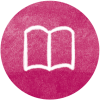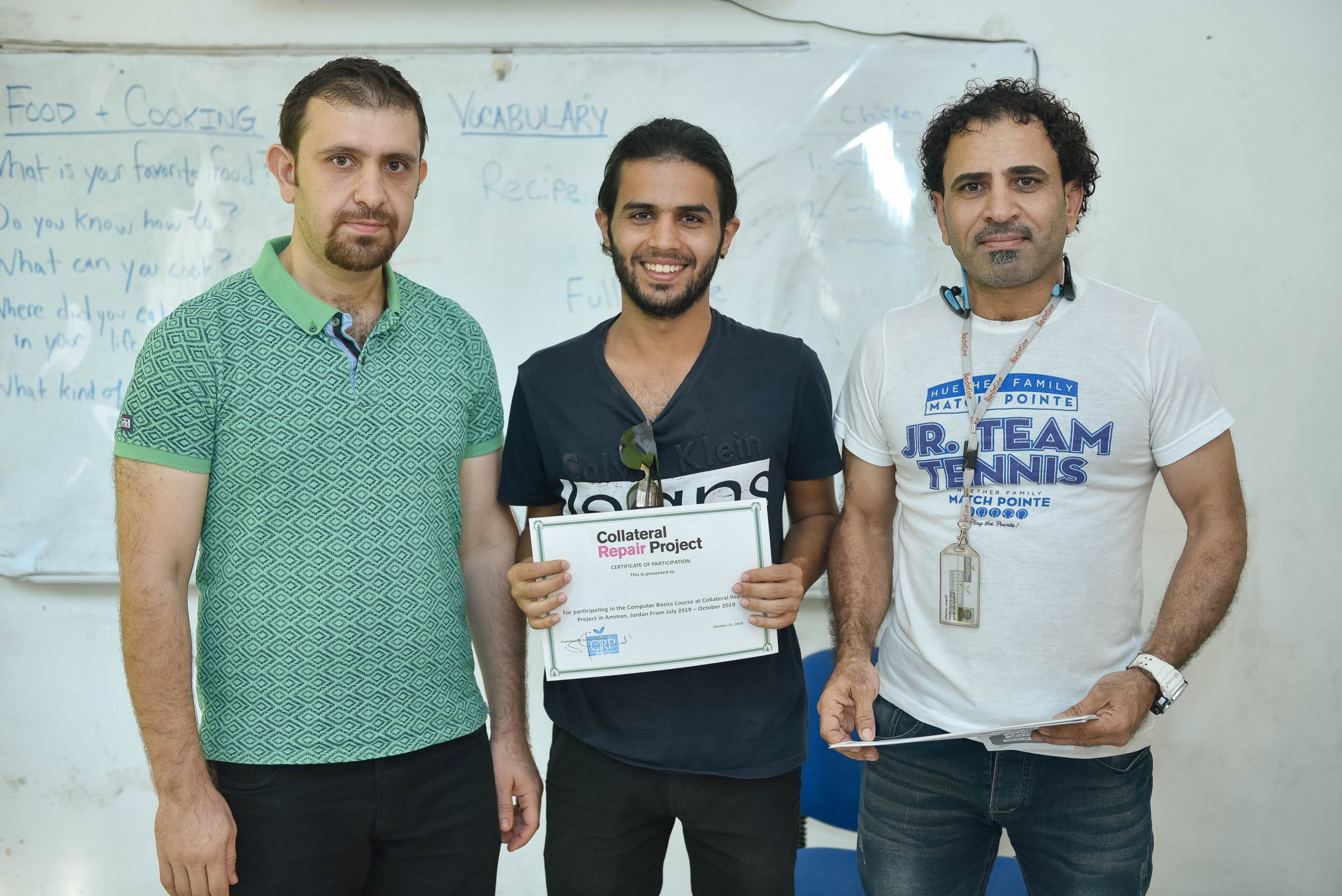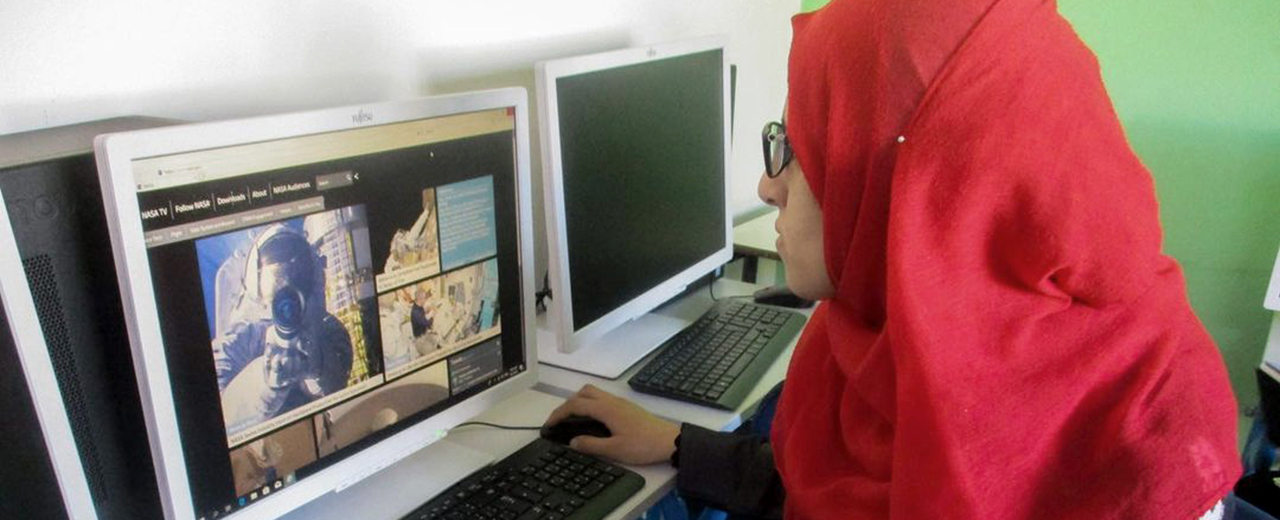 Digital participation for the entire family
Digital participation for the entire family
Creating prospects to counter fears of the future
"This is the opportunity that I and my family have been waiting for for a long time," says Malika (17) while beaming. She is in a community centre of the "Collateral Repair Project" in Amman and happily talks about the IT courses she and her family have been attending for a few weeks. "Finally, I can pursue my own educational and professional goals again and so, in the long run, can support my family." Malika and her family had to flee Syria a few years ago because of the war. At the time, it was her big dream to become a graphic designer. However, the many challenges and uncertainties that stood in the way of her and her family after having to flee put an end to the dream for the time being. Then, through acquaintances, she heard about the IT courses for people young and old. In the meantime, Malika's parents also regularly come to the courses and can now all look forward to the future with more self-confidence.
Necessity
Digital participation and training opportunities for young refugees and their families in Jordan
Activity
Schüler Helfen Leben's partner organisation offers free IT courses in its community centres
Countable effort
Number of young refugees and their families who successfully participate in an IT course and can complete it with a certificate
Result
Young refugees and their families in Jordan are more confident and have greatly increased their digital skills
Systemic effect
Improved education, job prospects and digital security for young refugees and their families in Jordan
Background
Through this good deed, young people and their families who have fled from war zones to Jordan gain basic and advanced IT skills. The twice-weekly courses for children and young people are offered by qualified teachers and run for a total of 3 months. Different levels are offered – from basic use of common PC software to advanced courses that build on this, e.g. programming or graphic design. Various degrees can be obtained within the framework of an internationally recognised computer science certificate (ICDL). In addition, monthly workshops are offered for parents in which they are familiarised with topics such as IT security and the protection of privacy on the Internet, thus promoting their digital literacy.
The good deed
Jordan borders Syria and Iraq and is considered "relatively safe" among the countries in the Middle East for people seeking refuge. Due to the wars in neighbouring countries, around 760,000 recognised refugees live in Jordan today. Only Lebanon has a higher percentage of refugees as a proportion of the total population (UNHCR, 2022). Initial conditions for the arriving people are catastrophic: About 80% of the refugees live below the poverty line of about 96 US dollars per month. Almost half of those seeking refuge are minors and have little or only limited access to education. This has been further exacerbated by the Covid pandemic (Human Rights Watch, 2020). Together with its local partner organisation "Collateral Repair Project", the foundation "Schüler Helfen Leben" offers IT courses for refugee families in Amman to facilitate their medium- to long-term integration into the labour market. This includes simple skills such as the use of text and image processing software as well as advanced skills such as programming or graphic design (Sahin-Mencutek & Nashwan, 2020). Furthermore, many refugees lack even basic digital skills related to online safety, privacy or even online banking (UNHCR, Empowering Refugees). The good deed opens up prospects for a self-determined future and successful vocational training for young refugees and their families, and also improves the social inclusion of refugee families into Jordanian society.

About Jordan
Amman
Capital
10,269,022
Number of inhabitants
4,405.8
Gross domestic product per capita per year
Rang 102 von 191
Human Development Index
Due to the high birth rate and the large number of refugees in the country, especially from Palestine and Syria, the population of Jordan today is 20 times higher than it was in 1950.
About the organization and further information
Association
Stiftung Schüler Helfen Leben
Website
https://www.schueler-helfen-leben.de

Further information and source
- Human Rights Watch (2020): "I Want to Continue to Study". Barriers to Secondary Education for Syrian Refugee Children in Jordan.
- Ruisi F. (2019): Challenges Faced by Syrian Refugees in the Higher Education Systems of Host Countries and How to Overcome Them. Lessons Learned from Jordan, EuroMeSCo.
- Sahin-Mentucek Z./Nashwan A. J. (2020): Perceptions About the Labor Market Integration of Refugees: Evidences from Syrian Refugees in Jordan, Journal of International Migration and Integration.
- UNHCR (2022): Jordan: Statistics for Registered Persons of Concern.
- UNHCR (o.J.): Empowering Refugees Through Technology.




